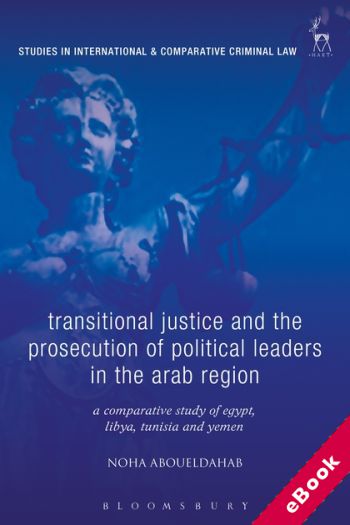
The device(s) you use to access the eBook content must be authorized with an Adobe ID before you download the product otherwise it will fail to register correctly.
For further information see https://www.wildy.com/ebook-formats
Once the order is confirmed an automated e-mail will be sent to you to allow you to download the eBook.
All eBooks are supplied firm sale and cannot be returned. If you believe there is a fault with your eBook then contact us on ebooks@wildy.com and we will help in resolving the issue. This does not affect your statutory rights.
The dramatic uprisings that ousted the long-standing leaders of several countries in the Arab region set in motion an unprecedented period of social, political and legal transformation, and saw criminal prosecutions in the Arab region take centre stage in the pursuit of transitional justice.
Through a comparative case study of Egypt, Libya, Tunisia and Yemen, this book presents a critique of mainstream transitional justice theory. The theory is built on the underlying assumption that transitions constitute a shift from non-liberal to liberal democratic regimes, where measures - often legal - are taken to address atrocities committed during the prior regime. It is guided by two principal questions: First, what trigger and driving factors led to the decision to prosecute and not to prosecute former political leaders? And Second, what shaping factors affected the content and extent of decisions regarding prosecution?
In answering these questions, the book enhances our understanding of how transitional justice is pursued in varied contexts by examining the factors that triggered, drove and shaped decisions regarding the prosecution of political leaders in the four case studies. The findings of this research therefore build on the growing literature that claims that transitional justice is an under-theorised field and needs to be developed to take into account non-liberal and complex transitions.
It will be stimulating and though-provoking reading for all those interested in transitional justice and the 'Arab Spring'.